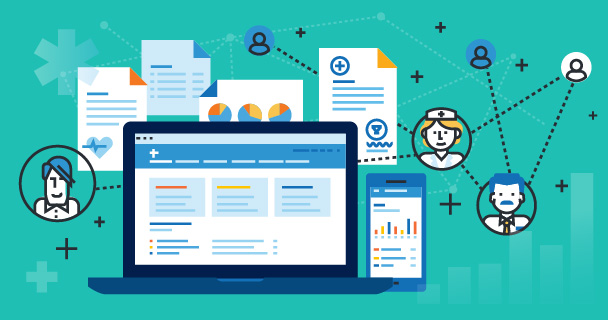blog


This blog post begins our series about Lifelong Learning featuring HealthStream’s partner, EBSCO Health.
Everyone in healthcare likes to talk about Lifelong Learning and its importance. What is it, and how does it apply to our industry? Diane Hanson, the Chief Nursing Officer (CNO) at our partner EBSCO Health, was recently interviewed about lifelong learning and its role in keeping healthcare professionals current in their fields. HealthStream asked Diane to elaborate on the definition of lifelong learning, what is behind it as a movement, how lifelong learning is important to different healthcare professionals, its relationship with engagement, and how to facilitate lifelong learning in healthcare organizations. Below is an excerpt from the article written from her responses.
What is “Lifelong Learning” and what is driving this movement in healthcare?
Lifelong learning has been recognized and supported as one of the most significant competencies that people must possess by education/academic organizations and groups, accreditation organizations, governments, employers, and the public at large. Lifelong learning offers individuals the opportunity to keep their knowledge current, learn new skills, and pursue a wide variety of interests through intellectual growth and expansion. Through this continuous learning cycle, people can provide an expanded contribution to society and extend their options for career choice and life enrichment. Healthcare is an ever-changing field of practice with advances in medicine, expanded evidence sources, new treatment options, and changing governmental regulations and models of care. Lifelong learning is not an option in healthcare, it’s required by healthcare workers to remain relevant and continue providing safe, effective patient care. The lifelong learning movement in healthcare provides benefit and welfare for everyone in society.
Applying Lifelong Learning to Three Healthcare Professionals
Diane was asked how lifelong learning might apply to three different healthcare professionals—a med-surg nurse with five years of experience in the nursing profession, a CNO with 25 years of nursing experience and 10 of those years in nurse management, and an Internal Medicine physician who has been practicing for 10 years. Here are her responses:
A medical-surgical nurse would need to stay updated in a variety of diagnosis and procedure/treatment categories. Using tools to stay updated on the most recent evidence is extremely important in addition to participating in continuing education and tracking CEs for licensure requirements. Offering to provide clinical leadership in precepting new nurses is another form of lifelong learning, as oftentimes there are new skills gained by teaching others. Also, medical-surgical practice can frequently be a first position for a nurse. After five years, a nurse may also want to consider learning another clinical area and/or obtain a specialty certification to augment current knowledge.
An experienced Chief Nursing Officer has many opportunities to participate in lifelong learning. Often, the skills required to lead effectively need to be continually honed and expanded. New challenges affecting the clinical workforce and healthcare in general require nursing leaders/managers to take leadership courses, become certified in healthcare leadership through formal channels, attend conferences, and stay updated on changing regulations and models of care delivery in order to stay challenged and effective in their roles.
Physicians have continual needs to stay updated in the most recent evidence, treatment options, pharmaceuticals, and equipment in order to practice medicine and maintain credentialing and practice privileges. Physicians benefit from lifelong learning activities such as attending conferences, staying active within their professional societies, and using evidence-based tools to assist with day-to-day decision-making. Physicians working in academic settings also have an opportunity to teach and participate in research to advance the lifelong learning of others. EMR advancement and adoption in healthcare and digital health has increased the need for physicians to learn a variety of technology systems as lifelong learning opportunities.
About Diane Hanson RN, BSN, MM; Chief Nursing Officer, EBSCO Health, and Editor in Chief, Dynamic Health
Diane Hanson is the Editor in Chief of Dynamic Health at EBSCO Health. In this role she provides leadership direction for nursing and allied health reference and clinical decision support strategies for the organization. After spending several years working in a hospital organization in various clinical and leadership positions, Diane has been focused on improving quality and evidence-based practice at the point of care through clinical decision support, health informatics and analytics. Diane brings over 25 years of experience in the healthcare industry, most recently as Vice President of Product Strategy & Management at Vizient Inc. Previously she served at Elsevier as General Manager within their CDS division and with Eclipsys (Allscripts) in an EVP leadership role. Diane is a published author and speaker on evidence-based practice and clinical decision support. She holds a degree in nursing from Grand Valley State University and a Masters in Management degree from Aquinas College.
HealthStream’s learning management system and healthcare training solutions support medical training initiatives and allow for the best patient care.
View All Learning & PerformanceExpand the decision-making skills and effectiveness of your healthcare workforce with HealthStream's workforce development programs and services.
View All Clinical DevelopmentHealthStream credentialing solutions bring automation, consistency, and insight to every step of the provider lifecycle—supporting clinical excellence and operational efficiency.
View All CredentialingHealthStream’s scheduling solutions help organizations—from acute to non-acute systems, large and small—optimize staffing, reduce burnout, and support staff with scheduling tools that adapt to their needs.
View All SchedulingWhen you enact HealthStream's quality compliance solutions, you can do so with the confidence your healthcare organization will meet all standards of care.
View All Quality & ComplianceTransform end-to-end revenue cycle management with comprehensive education
View All Revenue Cycle EducationLearn about our advanced resuscitation training solutions. Our solutions are designed to help improve patient outcomes.
View All Resuscitation